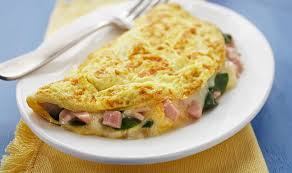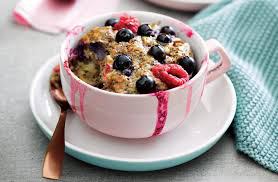Breakfast for Champions
[et_pb_section fb_built="1" _builder_version="3.26.3"][et_pb_row _builder_version="3.26.3"][et_pb_column type="4_4" _builder_version="3.26.3"][et_pb_text _builder_version="3.26.3"]
I routinely have the conversation about what an athlete should eat for breakfast either on game day or just in general. Or when I ask about what they eat for breakfast it is either nothing or some sort of sweetened dessert. Here I will provide tips on making a breakfast that will help athletes and really anyone to not sabotage their day, game or practice.
Why even have breakfast? More than likely you ate dinner between the hours of 6 and 8 the previous evening. As an athlete that practicing every day you are constantly in the recovery mode. So you need as much nutrition as you can to not only recovery but also continue to build your body, get stronger and add size to your body.
Under eating will not only be a disservice to you but also could lead injury and fatigue. You ate dinner and now you basically fast about 10-12 hours till you wake up and if you do not eat breakfast and wait till lunch then that will be about 17 hours till you eat age.
At that point, you are getting to the point where your body starts to use muscle as energy if you are particularly lean. We do not want that to happen. We do not want to lose muscle, our goal is to add muscle and size through eating.
There has been a countless amount of studies that talk about how not eating breakfast affects athletes academic performance, sports performance, workouts, and overall health. In order for this to not happen to take these tips and guidelines below to help you make the best breakfast so you can have a more productive day.
Breakfast Guidelines:
- A good breakfast should contain 500 to 750 calories, roughly half from carbohydrates, 25 percent from protein and 25 percent from fats. Ideal breakfast carbohydrate foods are fruits and vegetables, whole grain cereal such as oatmeal and whole grain bread such as 100-percent whole wheat or rye bread. Great sources of breakfast protein (which also contain fats) are eggs, nuts, seeds, peanut butter, milk, cheese, yogurt, and meat.
- Drink one cup of coffee or black or green tea with your breakfast. Coffee and tea have antioxidants that boost immunity and help prevent disease. Caffeine can also provide energy, enhance metabolism and promote endurance.
- Focus on whole foods verse packaged food.
- Drink Water in order to start hydrating for practice or game.
Breakfast Suggestions:
1. Greek Yogurt with fruit and seeds
- 1 cup of yogurt
- Fresh berries, banana or fruit of choice
- ¼-½ cup of nuts or seeds
- Add granola if you want more flavor or texture
- 1 scoop of Protein Powder
2.Egg Omelet
- 2-3 eggs
- ½ cup of chopped vegetables or meat
- Use olive oil or coconut oil to cook
- Slice or two of cheese of your choice
- Add avocado for additional fats

3. Oatmeal with nuts and raisins
- ½-1 cup of steel cut oats
- 1-1 ½ cups of water
- ¼ cup of nuts of your choice ( suggestions walnuts or almonds)
- ¼ of cinnamon or brown sugar
- ¼ cup of raisins or fruit of your choice
- 1 scoop of Protein Powder

There you have it! I know it may be difficult for a young athlete to get up and get breakfast because they may have gone to bed late. I guarantee that it will be a game changer in there overall well being throughout the day and their performance for games and even practice.
[/et_pb_text][/et_pb_column][/et_pb_row][/et_pb_section]